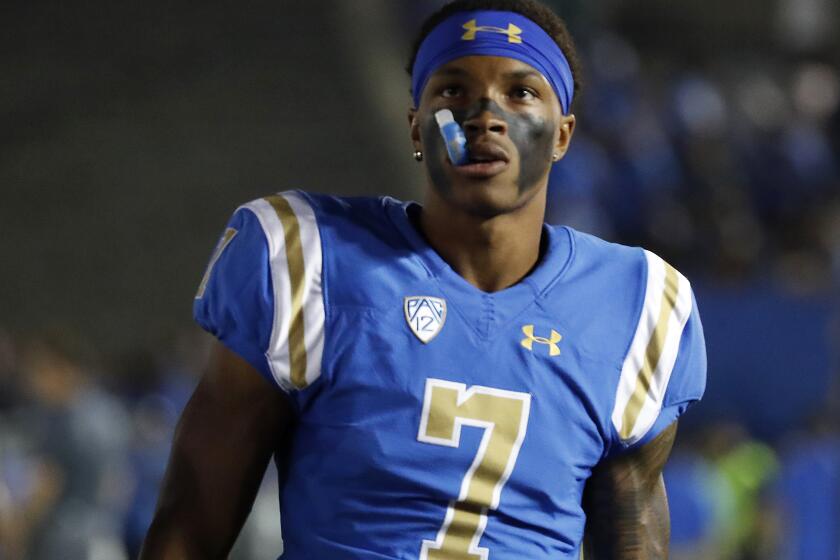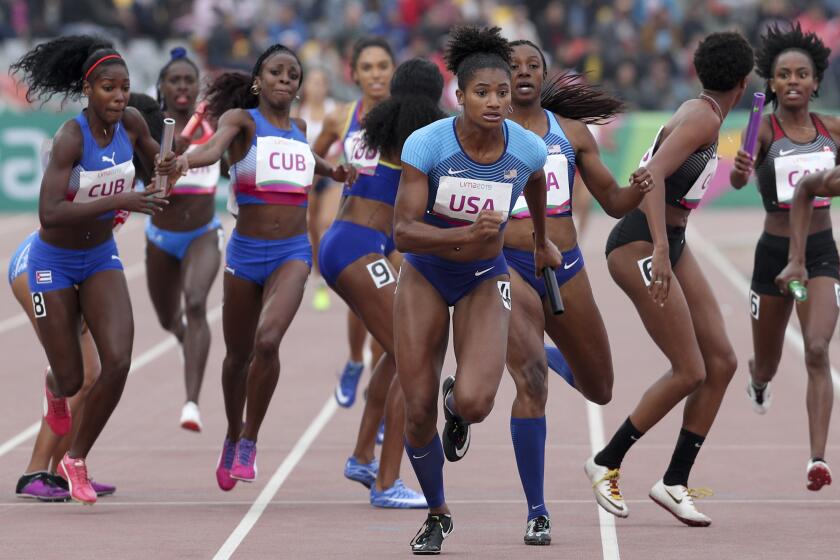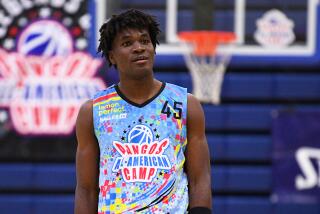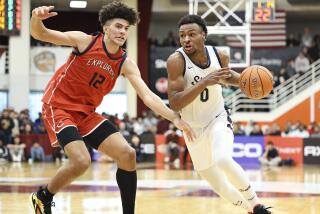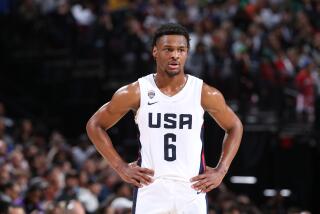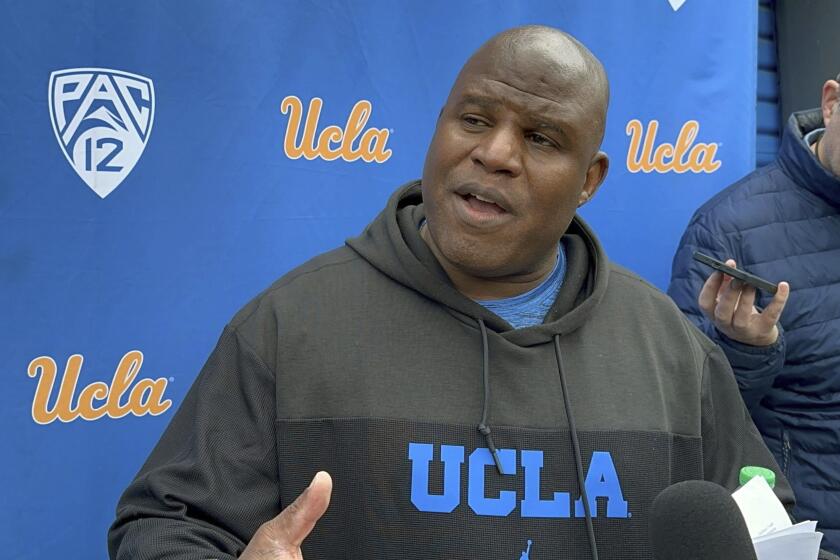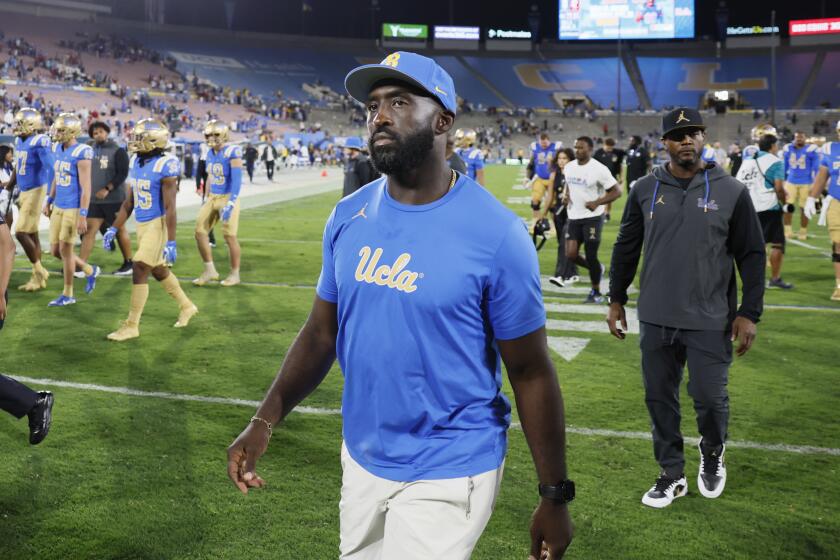As UCLA and USC football players return to campus, parents are concerned
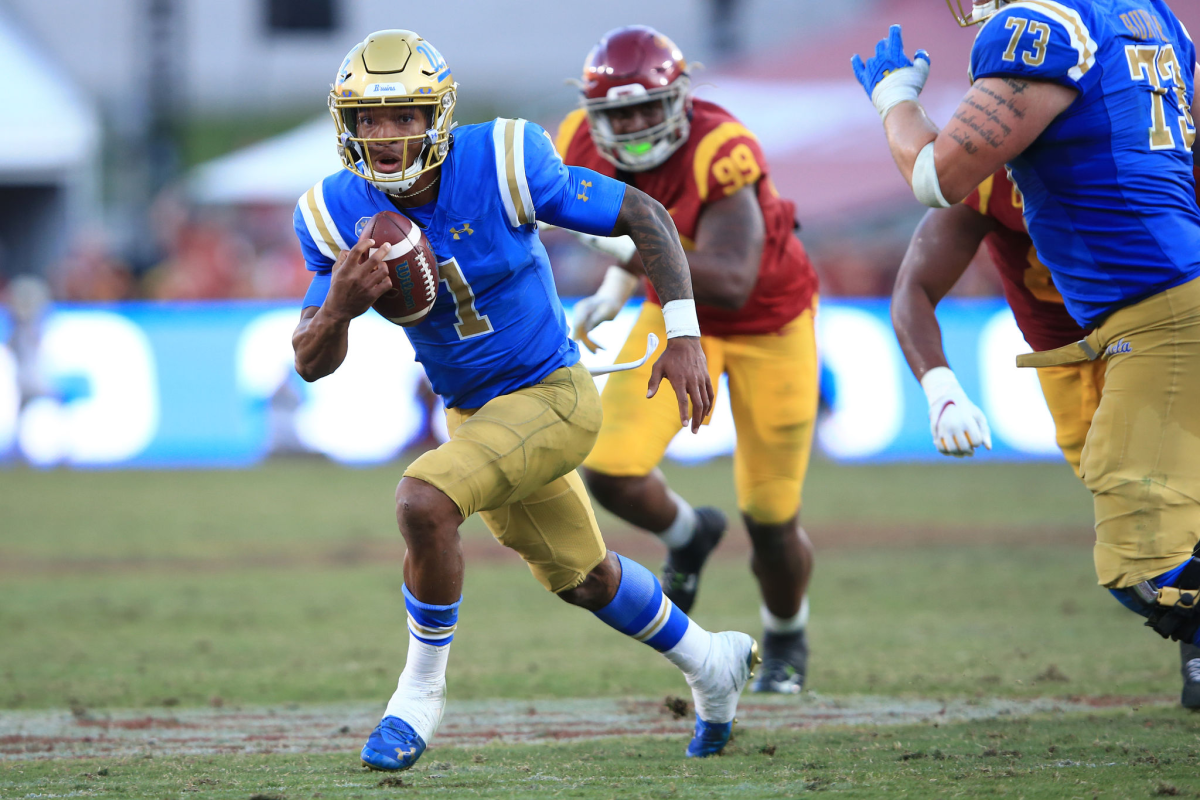
The guidelines state that workouts are “voluntary.” The Thompson-Robinson family, whose son Dorian is trying to steer UCLA from the depths of irrelevance, knows what that word really means.
“Look, Mom,” the quarterback tells his mother, “I have to go.”
Melva Thompson-Robinson understands, but it doesn’t ease all the mother’s worries.
As UCLA and USC outline their plans to have student-athletes return to campus for workouts amid a pandemic, parents watch, trusting that the promises coaches made during recruiting to protect players still apply during a public health crisis.
“I understand the desire to go back,” said Melva, who is a professor of social behavioral health at Nevada Las Vegas. “I think it’s going to be incumbent upon schools and coaches and athletic departments and the university to really step up and make sure that these kids are safe and don’t become infected.”
UCLA started the first phase of its four-stage return-to-training plan Monday, welcoming football players and local Olympic fall sports athletes back for voluntary workouts and housing them in single-occupancy apartments and dorm rooms.
USC followed on Wednesday with local fall-sport student-athletes, but no on-campus housing yet. USC’s second phase, with a target date of July 6, would welcome non-local student-athletes in fall sports and provide on-campus housing.
Thirty UCLA football players are demanding that certain measures for coronavirus protection be adopted or they will boycott recruiting activities.
Having housing available on campus is critical, Shan McClain said. The mother of USC football players Munir and Abdul-Malik McClain said her sons won’t return until they can stay at school, where the possibility for infection is limited in a controlled environment as opposed to commuting from their home in Ladera Ranch to campus every day.
The bubble tactic, if executed properly, is a “win-win,” Shan believes, because it keeps athletes safe, thus allowing them to compete better.
“If they want to win a national championship, they’re going to do their very best to keep every one of those players including the staff safe and secure,” Shan said.
USC announced one positive COVID-19 test Friday after 69 student-athletes from six teams were tested before voluntary workouts. UCLA will not release test information for student-athletes separately, but as of Saturday it reported 55 total confirmed cases among its entire population, which includes students, faculty and staff.
With USC’s football season scheduled to start Sept. 5 against Alabama in Arlington, Texas, the Trojans can begin mandatory offseason workouts and film study of no more than eight hours per week July 13, according to a preseason calendar approved by the NCAA. Up to 20 hours of work including walk-throughs and meetings can begin July 14, and preseason practices can start Aug. 7.
For UCLA, whose season opener is Aug. 29 against New Mexico State at the Rose Bowl, the timeline moves up by one week.
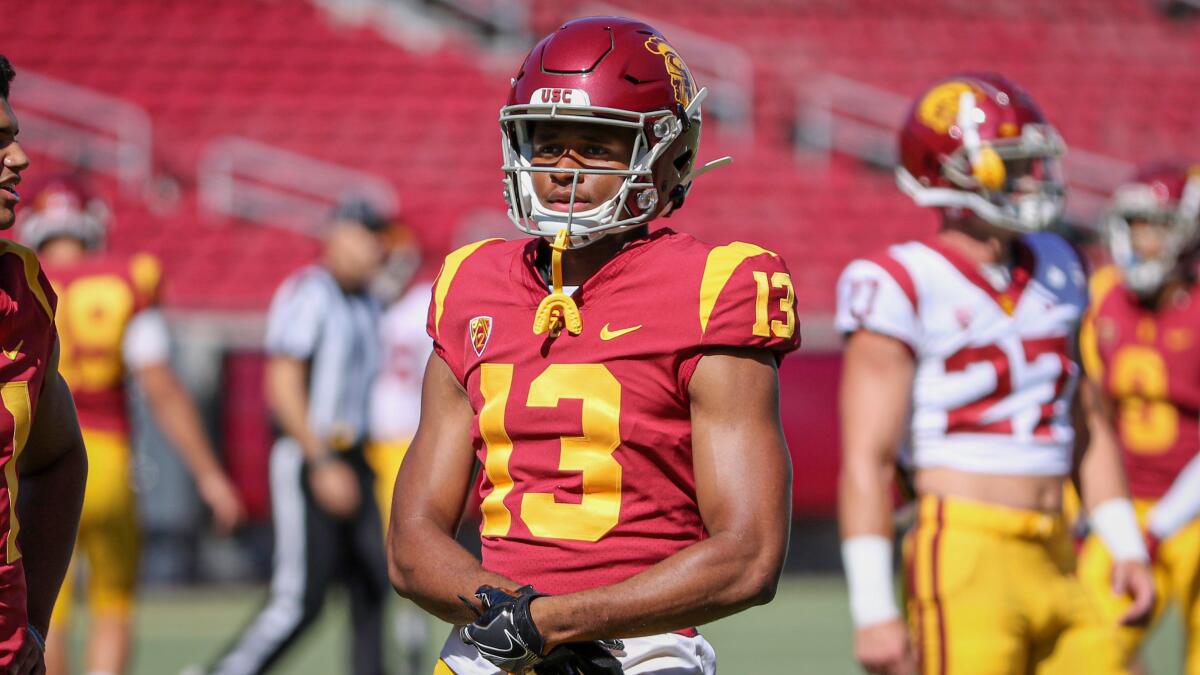
UCLA has not yet announced a date for mandatory football workouts. Elisha Guidry, who is slated to compete for a starting cornerback position this season, will come to campus at that time, his mother Kaishauna Guidry said, and not earlier.
Elisha, a rising redshirt sophomore who started nine games last year, has what he needs to stay in shape at home in Temecula, where he trains with his father, former UCLA defensive back Javelin Guidry, and older brother, an undrafted free agent signed by the New York Jets also named Javelin. Elisha didn’t work out on campus during the early stages of the pandemic when facilities were still open.
“Voluntary is for real, now that we’re in a pandemic,” said Kaishauna, a hospice doctor. “Before, it was voluntary in quotes, but in a pandemic, it’s really voluntary.”
Players often tout voluntary workouts as useful opportunities to review concepts with teammates and get reacquainted with strength and conditioning routines.. Coaches aren’t allowed to monitor the workouts, but they praise players for putting in additional work. The pressure to return — and fear of retribution for declining — amid an unpredictable pandemic are not far from the mind.
“As a parent, and I’ll be that forever, I always think safety’s first,” Shan said, “and I’m not throwing my kids into the hellfire just to appease someone.”
The United Black Student Athletes Assn. was formed to urge USC “to take bold, decisive action to combat racial inequality and support Black students.”
Many schools have reported positive coronavirus tests among student-athletes returning to campus for voluntary workouts. Clemson has reported 37 cases from its football team. Houston, which did not test athletes upon their return, paused voluntary workouts June 12 after discovering six positive cases among student-athletes.
USC plans to test student-athletes weekly upon their return. Kaishauna still wonders how frequently players, coaches and staff members will be tested at UCLA. With no reliable cure or vaccine in sight, the physician knows regular testing and contact tracing are some of the only hopes to contain the virus now.
No situation is ideal, said Melva Thompson-Robinson, who holds a doctorate in public health from South Carolina.
Since UCLA began rolling out its plan, Melva said she has followed up to ensure any staff members will be held to as high of a standard as players for adhering to safety protocols. Letting her second son leave her watchful eye in Las Vegas means trusting that not only will he abide by the rules, but all those around him will too. Hearing their assurances gave Melva more confidence in the plan.
Dorian, who turns 21 in November, will join his teammates this week after driving to L.A. with his father.
“Technically, he’s an adult,” Melva said. “So there’s only so much I can say, but at the same time, there’s the concern.”
More to Read
Go beyond the scoreboard
Get the latest on L.A.'s teams in the daily Sports Report newsletter.
You may occasionally receive promotional content from the Los Angeles Times.

